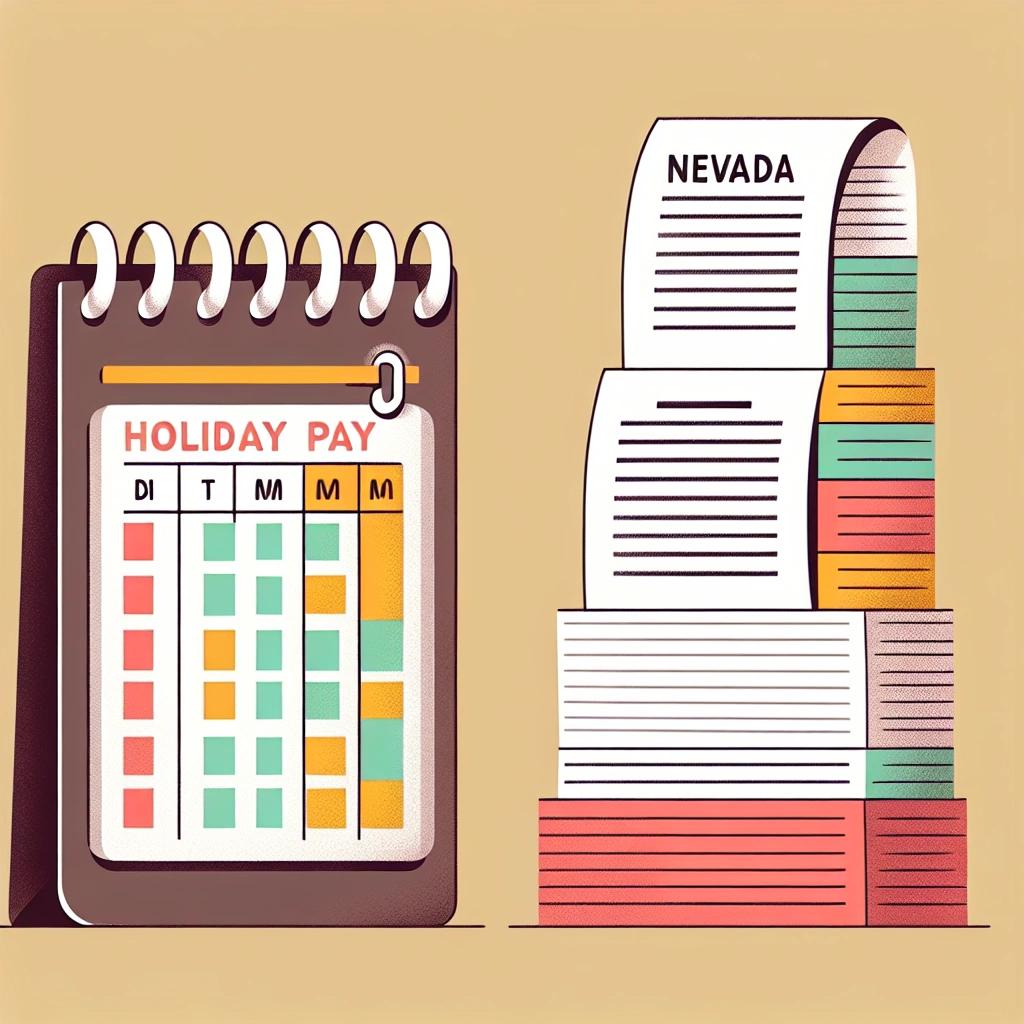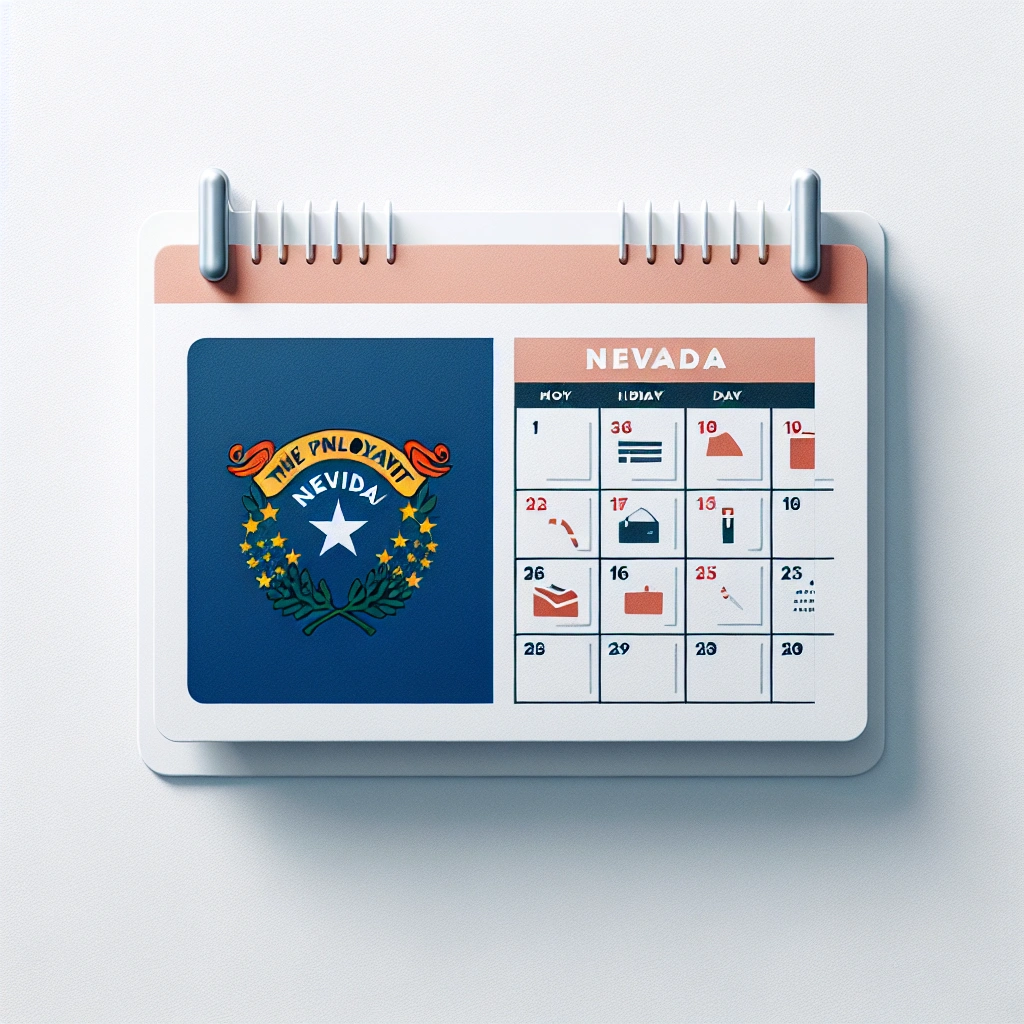Is Holiday Pay Mandatory In Nevada: Your Essential Guide
Short Answer for “is holiday pay mandatory in Nevada?”
No, holiday pay is not mandatory in Nevada. Employers are not required by state law to provide holiday pay or time off for holidays.
Check out this Youtube video: If you want to understand when holiday pay is mandatory in Nevada and when employers have to pay you overtime, this video has all the information you need!
Key Takeaways
-
Holiday pay is not mandated by state law in Nevada, and it is at the discretion of the employer to provide it or not.
-
Nevada does not specify a particular number of paid holidays that employers are required to provide, leaving it up to the employer’s decision.
-
Employers must ensure that their payment and time-off policies comply with relevant federal laws, such as the Fair Labor Standards Act (FLSA).
-
Nevada’s approach to holiday pay laws is more flexible compared to some other states, leaving the decision to provide such compensation largely in the hands of individual employers.
-
Understanding holiday pay requirements in Nevada is crucial for ensuring compliance and fostering positive workplace relationships.

Understanding Holiday Pay in Nevada
In Nevada, private employers are not required by law to provide holiday pay or time off for holidays. If an employer chooses to offer paid holidays, they must do so consistently for all employees and clearly outline the policy in the employment contract or company handbook. The number of paid holidays and the compensation for working on those days is at the discretion of the employer.
Definition of holiday pay
Holiday pay refers to any form of compensation, such as paid time off or additional wages, provided to employees by their employers during recognized holidays. This can include a regular rate of pay or a premium pay rate to compensate for working on holidays, depending on the employer’s policies.
For example, some companies may offer double pay for working on holidays, while others may offer a standard day’s pay plus a day off in lieu.
Explanation of holiday pay laws in Nevada
In Nevada, the law does not mandate private employers to provide holiday pay or time off for holidays. However, if an employer does decide to offer paid holidays, they must adhere to their established policies consistently for all employees.
Additionally, if an employer chooses to provide paid holidays, these arrangements should be clearly outlined in the employment contract or company handbook to ensure transparency and fairness.
Overview of paid holidays in Nevada
Nevada does not specify a particular number of paid holidays that employers are required to provide. Instead, it is at the discretion of the employer to determine the holidays they recognize and the compensation offered for working on those days.
Some common holidays observed by many employers in Nevada include New Year’s Day, Memorial Day, Independence Day, Labor Day, Thanksgiving, and Christmas. However, it’s essential for employees to refer to their employment contracts or company policies to understand their entitlement to paid holidays.

Is Holiday Pay Mandatory in Nevada?
In Nevada, holiday pay is not mandated by state law. However, if an employer chooses to provide holiday pay, they must adhere to the rules and regulations set forth by the state’s labor laws.
It’s worth noting that Nevada does not require private employers to grant time off for holidays or to compensate employees for such time Off.
Examination of Nevada labor laws regarding holiday pay
Nevada labor laws do not have specific provisions mandating holiday pay, and whether an employer provides holiday pay is typically determined by company policy or employment contract. Therefore, it’s essential for employees to review their employment agreements or consult with their human resources department to understand the holiday pay entitlements.
While the state does not require employers to offer holiday pay, they must ensure that their payment and time-off policies comply with relevant federal laws, such as the Fair Labor Standards Act (FLSA).
Comparison of holiday pay laws in Nevada with other states
Compared to some other states, Nevada’s approach to holiday pay laws is more flexible, as it leaves the decision to provide such compensation largely in the hands of individual employers. In contrast, certain states have specific regulations dictating which holidays qualify for paid time off and the compensation rates for such holidays.
Understanding these variations can be crucial for individuals considering employment opportunities in different states or for companies operating across multiple jurisdictions.
Factors that determine mandatory holiday pay in Nevada
While Nevada may not require mandatory holiday pay, the decision to offer such compensation is reliant on individual employers, who may consider various factors in making this determination. Factors influencing mandatory holiday pay could include the company’s financial status, industry standards, and competitive practices within the labor market.
Moreover, offering holiday pay can contribute to employee satisfaction, retention, and overall workplace morale, factors that many employers may take into account when formulating their compensation and benefits packages.
Holiday pay in Nevada is an essential aspect of employment law that impacts both employers and employees. Understanding the holiday pay laws in Nevada is crucial for ensuring compliance with the state’s regulations and providing fair compensation to workers.
Employers in Nevada are required to adhere to specific guidelines regarding holiday pay, including ensuring that nonexempt employees receive payment for eleven holidays per year when in “paid status” during any portion of their shift. This encompasses the entitlement to payment for holidays at a nonexempt employee’s normal rate of pay plus the differential rate of pay for the holiday.
One crucial aspect to note is the definition of “holiday pay,” which refers to payment for a holiday at a nonexempt employee’s normal rate of pay along with the differential rate of pay for the holiday. This underscores the significance of accurately compensating employees for holidays to maintain regulatory compliance and uphold fair labor practices.
Understanding the holiday pay requirements in Nevada is important for employers to avoid any potential legal issues and ensure that employees receive their rightful compensation for holidays. It also contributes to fostering positive workplace relationships and maintaining employee satisfaction.
Holiday pay is mandatory in Nevada, and employers must effectively navigate the state’s regulations to ensure compliance. By comprehensively understanding and implementing holiday pay laws, employers can uphold fair labor practices and foster a positive work environment while avoiding potential legal ramifications.
| State | Nevada |
|---|---|
| Mandatory Holiday Pay | No |
| Employer’s Responsibility | Compliance with state regulations |
| Private Employers | Not required to grant time off or compensate for holidays |
| Employee Entitlement | Review employment agreements or consult HR department for holiday pay details |
| Comparison with Other States | Nevada’s approach to holiday pay laws is more flexible |
| Factors for Mandatory Holiday Pay | Financial status, industry standards, competitive practices, employee satisfaction, retention, and workplace morale |
| Guidelines for Employers | Payment for 11 holidays per year for nonexempt employees in “paid status” during any portion of their shift at their normal rate of pay plus differential rate |
